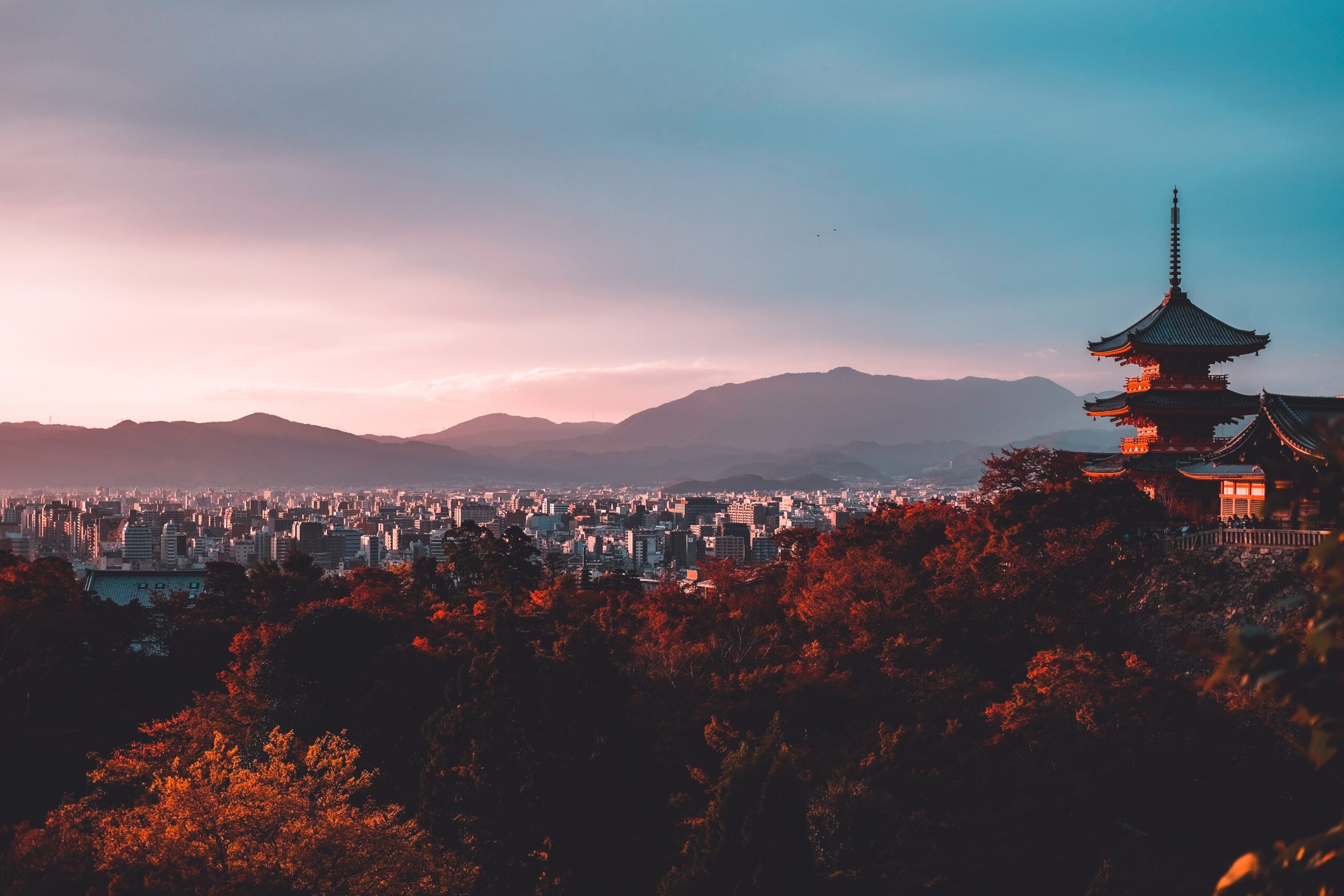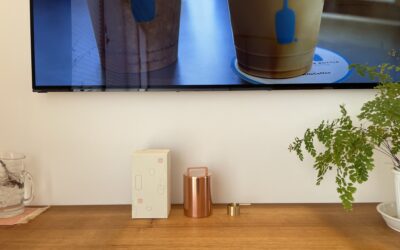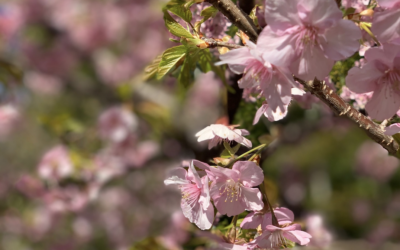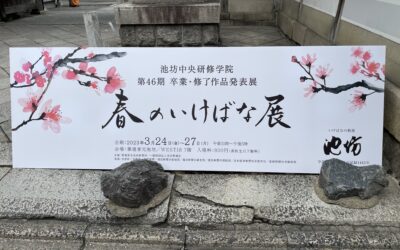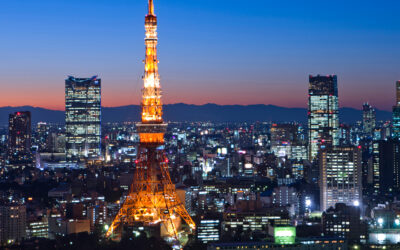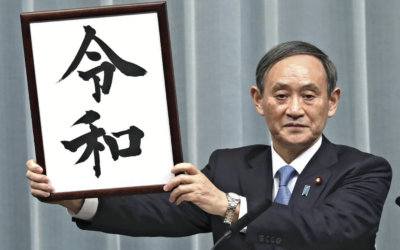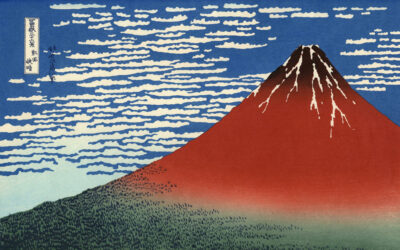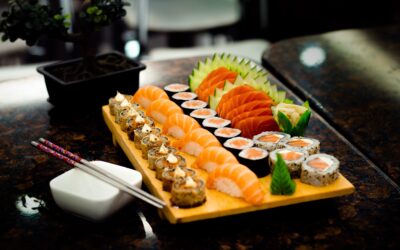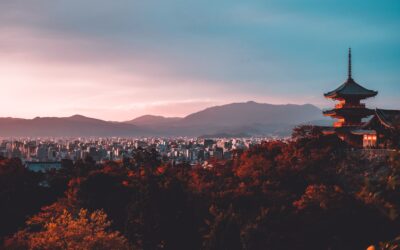In Kyoto, there are many old “Machiya” houses that are more than 100 years old, and if you go to the suburbs, you will find abundant greenery and nature. Now, New hotels that take advantage of the unique characteristics of this ancient city, are opening one after another.
In this article, we will introduce three of the most notable hotels that opened in 2020-21.
Ace Hotel Kyoto
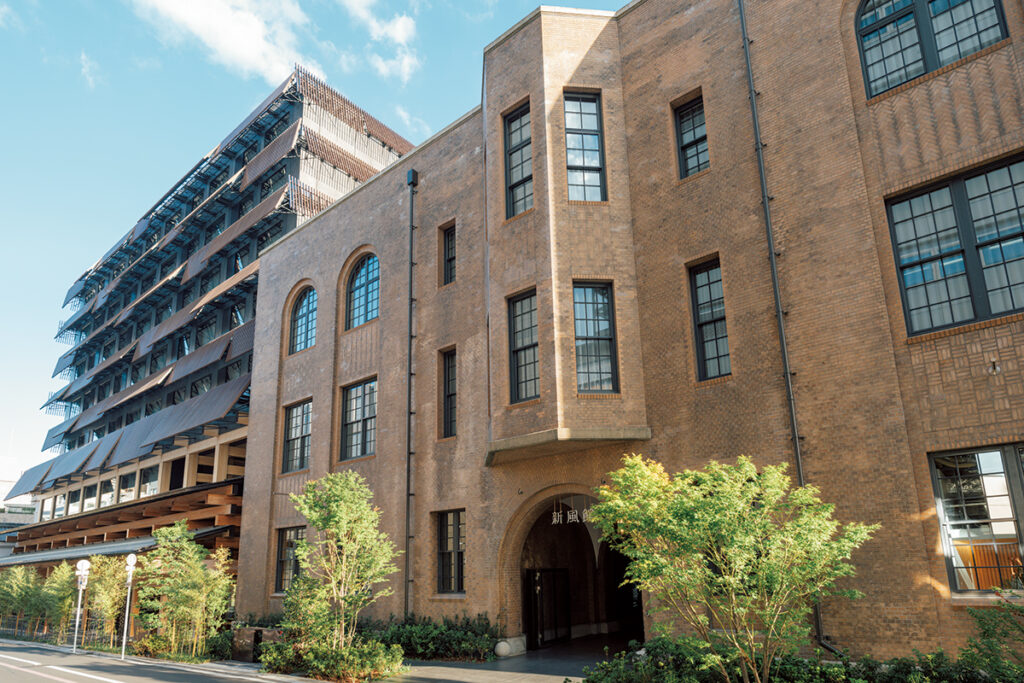
A Lifestyle Hotel Born in Seattle
Ace Hotel was established in Seattle in 1999.
It is characterized by a highly sensitive yet casual space and service filled with a playful spirit. By allowing non-guests to hang out in the lobby, the hotel has transformed itself from a place to sleep to a hub for people to gather.
Why did they choose Kyoto for their first foray into Asia? One of the reasons is said to be the encounter with the old Kyoto Central Telephone Office, built in 1926. The building was designed by Tetsuro Yoshida, a leading architect of modern Japanese architecture, and is covered with bricks, giving it a stately appearance. After its role as a telephone station ended, it was renovated into a commercial facility called “Shinpukan” and has been loved as one of Kyoto’s landmarks.
When a redevelopment project was launched at this location, the architectural design was supervised by Kengo Kuma, a world-renowned designer who also designed the main stadium for the Tokyo Olympics. The interior was designed by Commune, a long-time partner of Ace Hotel, and this is how the space of Ace Hotel Kyoto was constructed.
”East meets West.”
Ace Hotel has always collaborated with local creators in the past. In the case of Kyoto, the artwork by the dyeing artist Samiro Yunoki and the curtains and bed lamps by minä perhonen are common to all rooms, and the color tones of the furniture and fabrics are based on Japanese materials such as wood, plaster, and Japanese paper to create a warm space.
In addition, all rooms are equipped with Tivoli radios, TEAC record players and guitars in some rooms, which is unique to Ace Hotel, which values art and music.
Hotel The Mitsui Kyoto
HOTEL THE MITSUI KYOTO, a luxury hotel of the highest class, was born in a luxurious location overlooking Nijo-jo Castle, a World Heritage Site. For more than 250 years, this area was home to the residence of the Mitsui family.
With the Kajiimiya Gate and other relics that have been handed down since that time, the theme of “Heritage and Rebirth” is to revive the present while following the “memories of time” engraved on the land, making your stay in Kyoto an irreplaceable experience.
“Heritage and Rebirth”
The hotel is located across Horikawa-Dori Street with a view of Nijo-jo Castle on the west side, while the remaining three sides of the hotel are densely covered with other buildings, limiting the freedom of construction in consideration of the landscape conditions. Therefore, they adopted a plan to enclose the perimeter of the site with a dugout and add a courtyard in the center.
At the root of this plan is the ancient Japanese architectural concept of “Teioku-Itchinyo”. The term refers to a state in which the garden and the building, while each having its own presence, are in harmony as one. In Kyoto, there are many famous architectures that are based on the concept of Teioku-Itchinyo, and Katsura-Rikyu, whose charm was conveyed overseas by Bruno Taut and others, is a perfect example.
In addition, Teioku-Ichinyo has a close relationship with the ancient Japanese view of nature and religion. Even when you are inside, you are aware of the connection with the outside, and even when you are outside, you can feel the presence of the inside. It is a concept that has been handed down from the Shinden-Zukuri style that flourished mainly in the Heian period (794-1185). In this hotel, however, the building surrounds the courtyard. This is a modern update that brings the hotel closer to nature while adapting to external factors.
Mitsui Family and Kajiimiya Gate
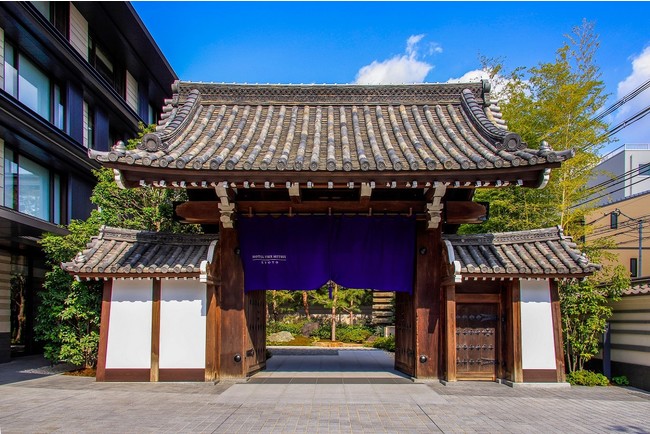
The Mitsui Family is an essential part of the history of the Japanese economy. This hotel stands on the site of the former Aburakouji residence, where the “Omotokata”, the controlling body of the Mitsui Family, was located. As the new flagship hotel of the Mitsui Fudosan Group, the hotel is proud to be a top-class brand.
Especially symbolic is the “Kajiimiya Gate”. This gate was built in 1703 as the gate to the Kajii Palace, and was moved to the current location of the Aburakouji Residence in 1935, and was fully restored by the palace carpenters during the construction of the hotel, and was reborn as ENTRANCE in November 2020.
This shape is called “Yakuimon” and is used not only in temples and shrines but also in castles and residences. The majestic remains of the gate, with its 4.5 m pillar spacing and 7.4 m height, will capture the hearts of all who see it. While retaining more than 80% of the exterior components, the building has also evolved to be more earthquake-resistant.
The building was registered as a tangible cultural property in 2021.
ONSEN
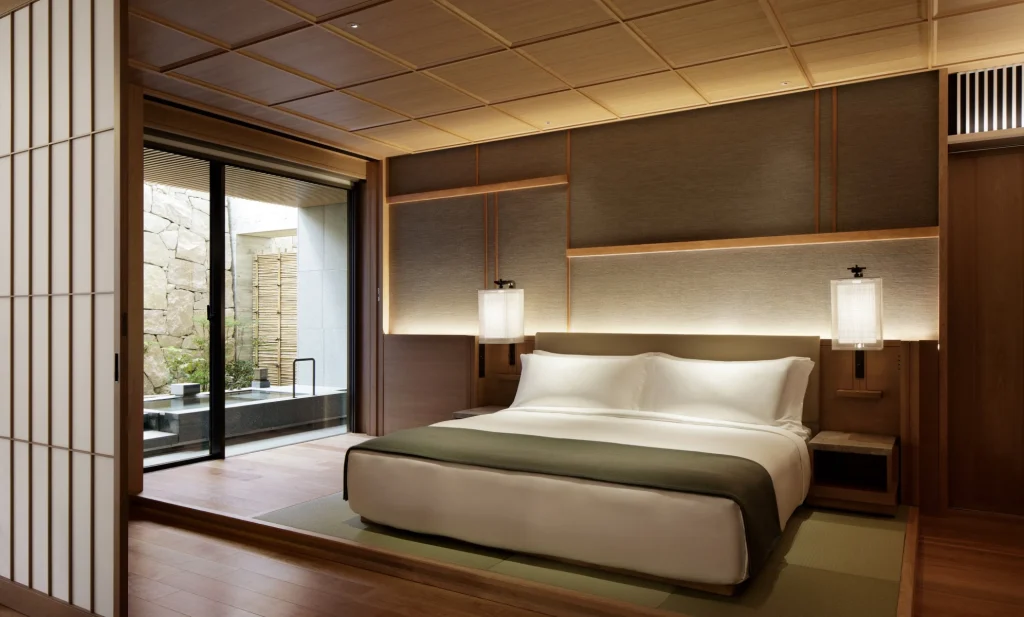
One of the most notable hotel facilities is the Thermal Spring SPA, which utilizes natural hot spring water that comes up from 1,000 meters inside the property. The space surrounded by high-quality tranquility and water invites you to take a break from your daily life and enjoy the best in healing and relaxation.
If you want to enjoy the hot spring in the privacy of your guest room, you can choose the “ONSEN Suite” with an outdoor hot spring bath. The hotel also offers a variety of other attractive rooms, such as the Suite Room with a view of Nijo-jo Castle, a World Heritage Site.
FAUCHON Hotel Kyoto
Fauchon Hotel Kyoto is a hotel with a completely new set of values, combining the culinary, artistic, spatial, and hospitality aesthetics that live and breathe in Paris and Kyoto to provide guests with the best possible experience.
Since its establishment by Auguste Fauchon in 1886 at Place de la Madeleine in Paris, they have been a gastronomic brand that has supported the lifestyles of Parisians for more than 130 years, selling luxury pastries, macaroons, chocolates, jams, and teas using ingredients selected from around the world.
Following the opening of its first Fauchon Hotel in Paris, in 2018, they opened its second hotel in the world in Kyoto.
“FAUCHON Meets Kyoto. Feel Paris.”
Fauchon Hotel Kyoto was designed by Yasuhiro Furuichi of Spin, a design studio that specializes in luxury hotels and restaurants.
In this hotel, the design styles, materials, and techniques of Kyoto and Paris are combined in an exquisite balance. For example, the flow from the exterior to the entrance with its symbolic arch shape is a good example. Also, the approach into the hotel is reminiscent of a Parisian façade. As you enter the hotel, you can look up and see the stained glass windows with the motif of cherry blossoms in full bloom.
The grand staircase leading from the entrance to the tea salon is gracefully designed to look like a phoenix with its wings spread and flowers spilling out. Both wings are expressed in a Western way with curved iron lines, while the flowers are arranged in a traditional Japanese pattern.
The interior design is inspired by the Parisian style of Fauchon Pink, while the materials used are Nishijin textiles, one of the traditional crafts of Kyoto.
Afternoon Tea in Salon de The Fauchon
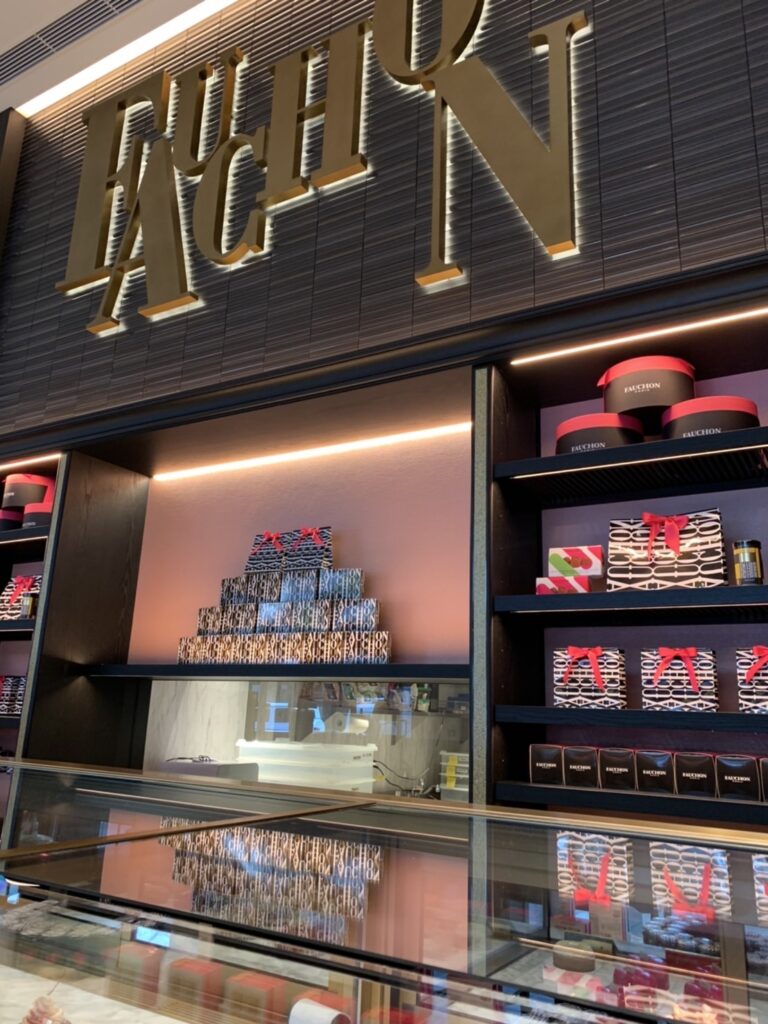
After passing through the lobby and up the grand staircase, on the second floor is the Salon de The Fauchon, a tea salon.
The Tea Salon features a sophisticated interior design with a Western feel, while using Japanese paper and materials with a motif of the “Kyo-Koshi” often seen in Kyoto’s Machiya. With a subtle touch of Fauchon pink, it is an extraordinary space of relaxation where Paris and Kyoto elegantly merge.
Here, you can enjoy a Kyoto version of the afternoon tea that is popular at the Fauchon Hotel Paris.
Since its establishment in 1886, their teas have been synonymous with Fauchon. Starting with the discovery of fragrances, they have released flower petal flavored teas and fruit-flavored teas one after another. It would not be an exaggeration to say that Fauchon is known for flavored teas.
In this salon, you can enjoy these 23 kinds of teas along with a variety of suits such as scones, financiers, and the signature of Fauchon, macarons imported directly from Paris.
Le Spa Fauchon
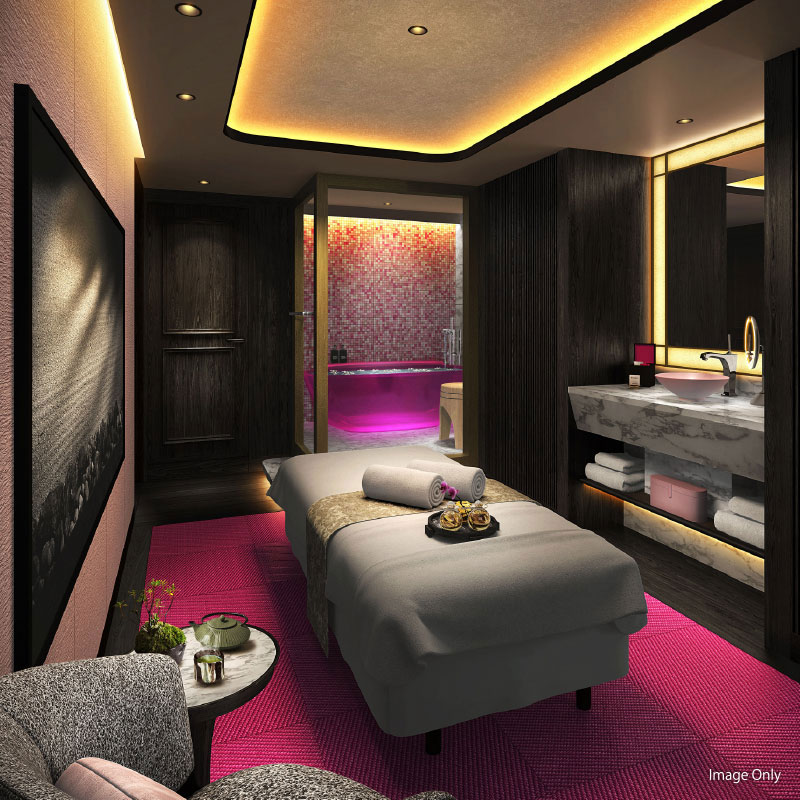
“Le Spa Fauchon” is the first spa opened in the world as a Fauchon brand. It is positioned as the best spa by beauty specialists from Japan and Paris, and embodies the image of their concept, “FAUCHON Meets Kyoto. Feel Paris”.
For this spa, Fauchon developed its original oil “Fauchon Signature Beauty Oil” with the cooperation of KOS PARIS. The main ingredient is camellia oil, blended with sunflower, grape seed, and coconut oil, and the texture is light and easy to spread.
The top note is a mysterious scent of rosewood and sandalwood, which are well known in Japan, and the last note is a sweet scent of benzoin, reminiscent of Fauchon sweets.

